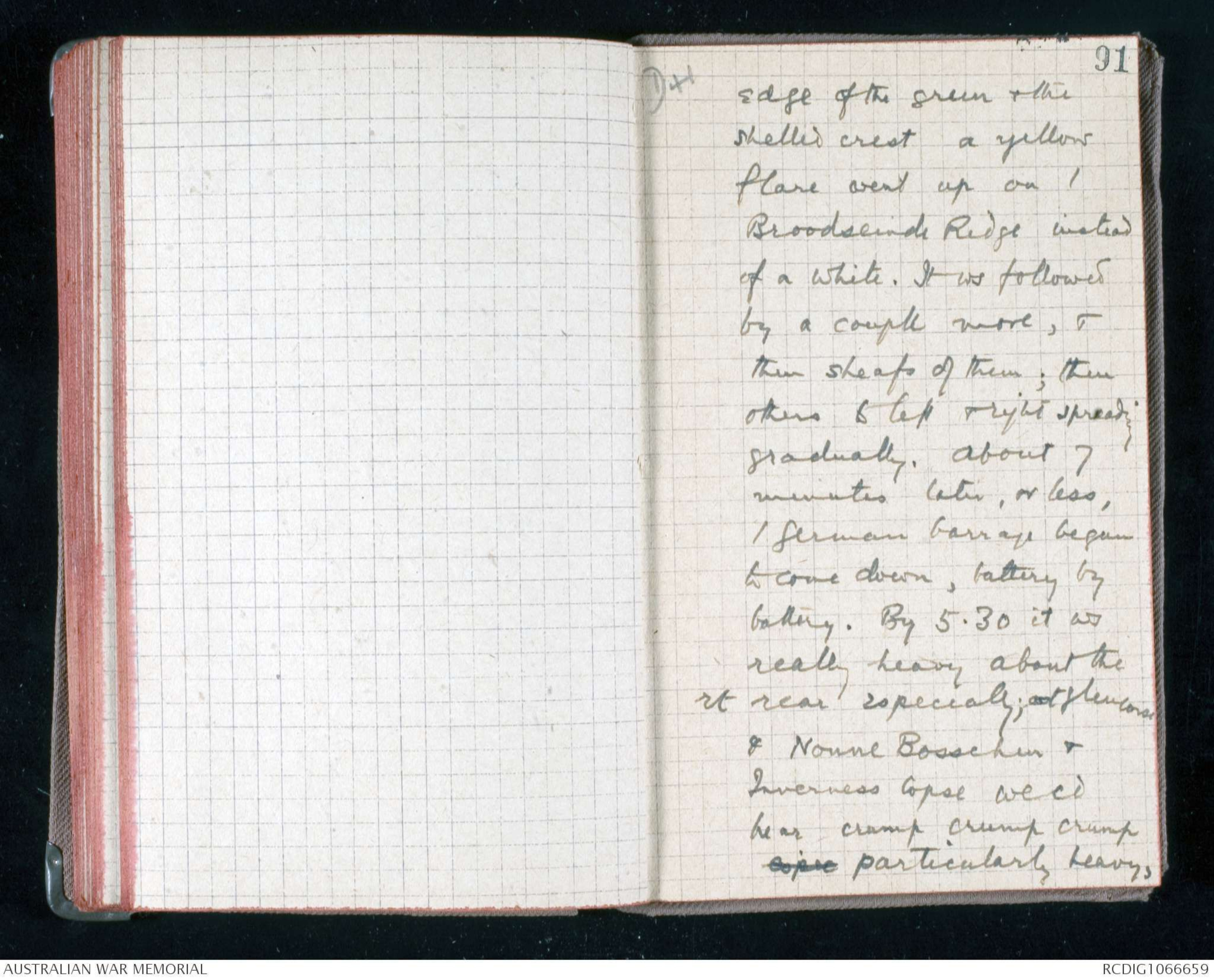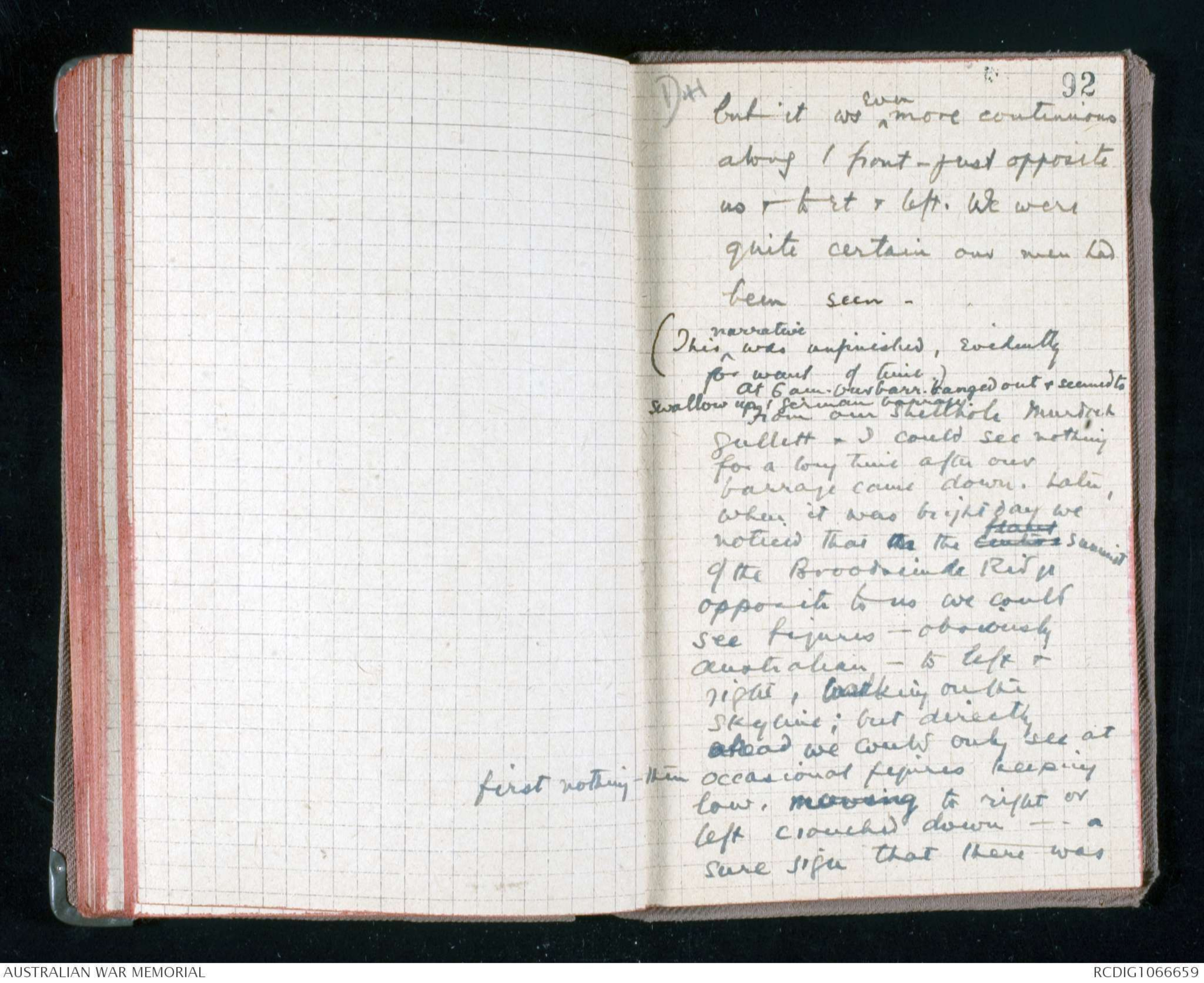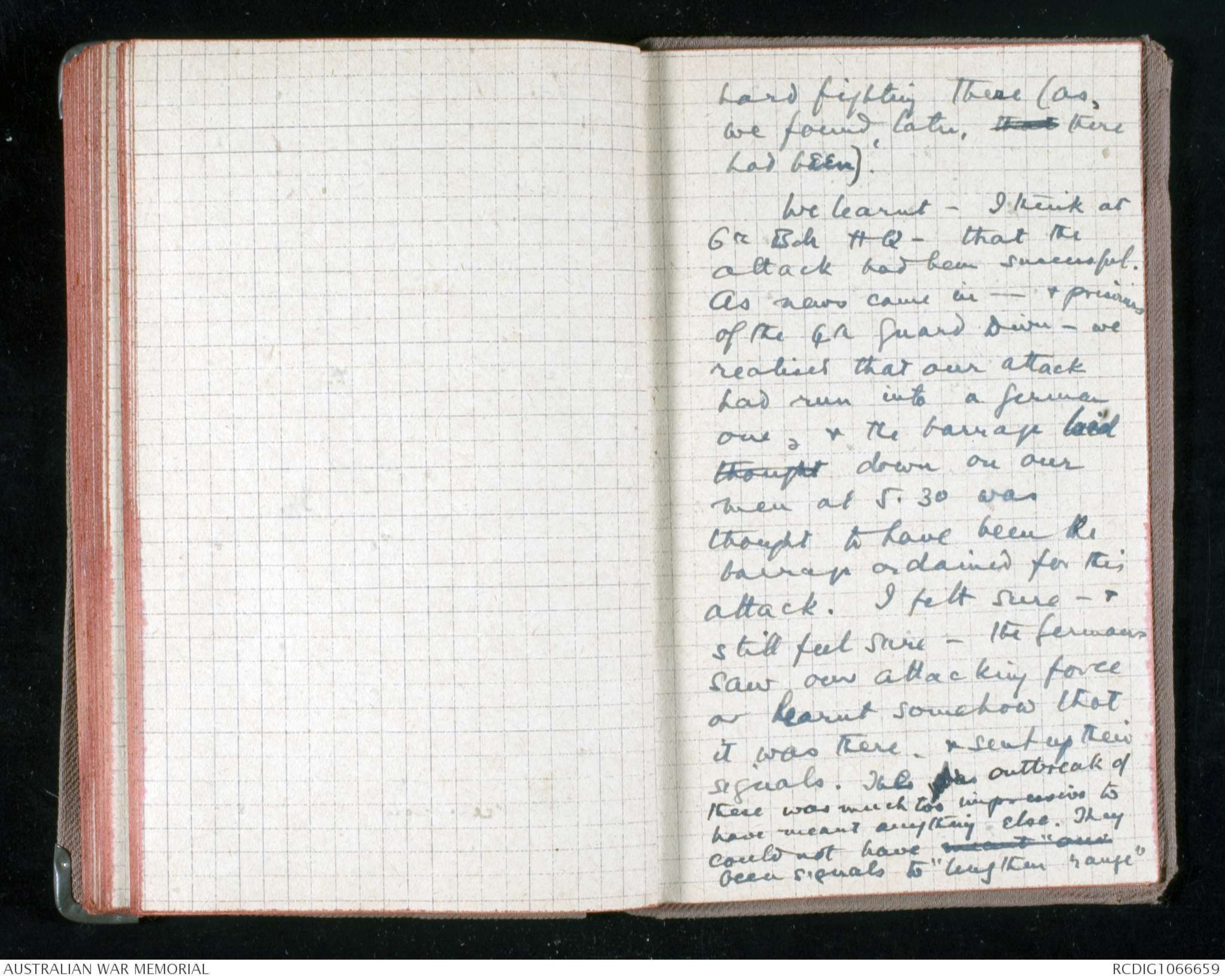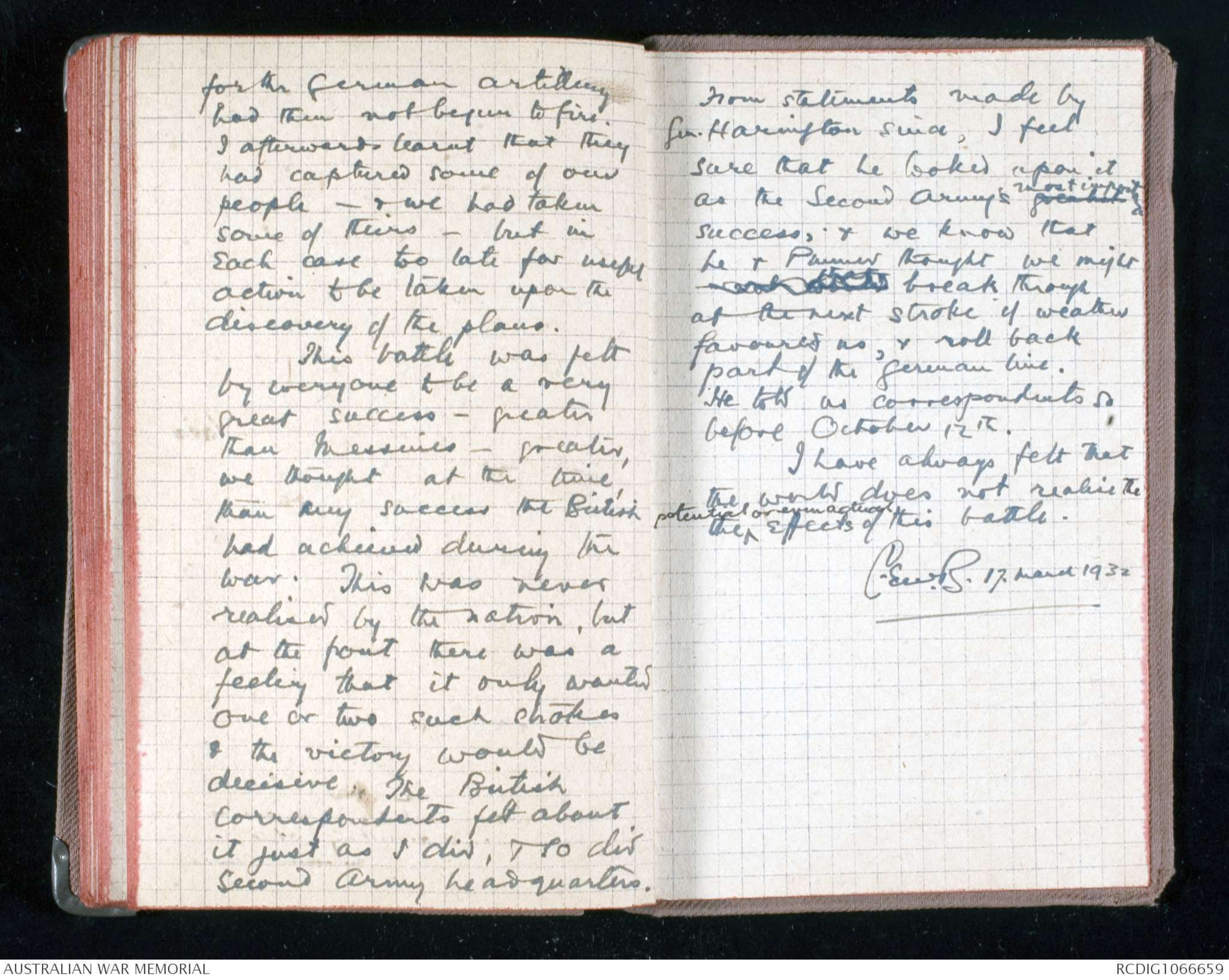Charles E W Bean, Diaries, AWM38 3DRL 606/91/1 - October 1917 - Part 10




91
D41
edge of the green & the
shelled crest a yellow
flare went up on /
Broodseinde Ridge instead
of a White. It ws followed
by a couple more, &
then sheafs of them; then
others to left & right spreading
gradually. About 7
minutes later, or less,
/ German barrage began
to come down, battery by
battery. By 5.30 it ws
really heavy about the
rt rear especially; at Glencorse
& Noune Bossehin &
Inverness Copse we cd
hear crump crump crumpcopse particularly heavy,
92
D41
but it ws ^even more continuous
along / front - just opposite
us & to rt & left. We were
quite certain our men had
been seen -
(This ^narrative was unfinished , evidently
for want of time.)
At 6 am. our barr. banged out & seemed to
swallow up / German barrage.
From our Shellhole Murdoch
Gullet & I could see nothing
for a long time after our
barrage came down. Later,
when it was bright day we
noticed that xx the Haxxx Centra Summit
of the Broodseinde Ridge
opposite to us we could
see figures - obviously
Australian - to left &
right, walking on the
skyline; but directly
ahead we could only see at
first nothing - then occasional figures keeping
low, moving to right or
left crouched down -- a
sure sign that there was
hard fighting There (as,
we found, later, that there
had been).
We learnt - I think at
6th Bde HQ - that the
attack had been successful.
As news came in - & prisoners
of the 4th Guard Divn - we
realised that our attack
had run into a German
one, & the barrage laidthought down on our
men at 5.30 was
thought to have been the
barrage ordained for this
attack. I felt sure - &
still feel sure - the Germans
saw our attacking force
or learnt somehow that
it was there. & sent up their
signals . The xxx outbreak of
these was much too impressive to
have meant anything else . They
could not have meant "our
been signals to "lengthen range"
for the German Artillery
had then not begun to fire.
I afterwards learnt that they
had captured some of our
people - & we had taken
some of theirs - but in
each case too late for useful
action to be taken upon the
discovery of the plans.
This battle was felt
by everyone to be a very
great success - greater
than Messines - greater,
we thought at the time,
than any success the British
had achieved during the
war. This was never
realised by the nation, but
at the front there was a
feeling that it only wanted
one or two such chokes
& the victory would be
decisive. The British
Correspondents felt about
it just as I did, & so did
Second Army headquarters.
From statements made by
Gen. Harrington since, I feel
sure that he looked upon it
as the Second Army's greatest most important
success, & we know that
he & Plummer thought we mightxxxx xxxx break through
at the next stroke if weather
favoured us, & roll back
part of the German line.
He told us correspondents so
before October 12th.
I have always felt that
the world does not realise the
the ^potential or even actual effects of this battle.
C.ew.B. 17. March 1932
 Lulu B
Lulu BThis transcription item is now locked to you for editing. To release the lock either Save your changes or Cancel.
This lock will be automatically released after 60 minutes of inactivity.